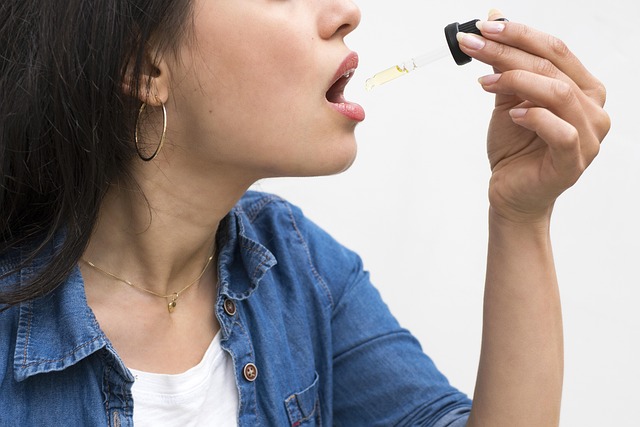High potency cannabinoids (HPCs), natural compounds in cannabis with up to X% active ingredients, offer significant therapeutic benefits. Lab testing is vital for safety, quality, and consumer education in today's bustling cannabis market. Advanced analytical techniques like chromatography ensure accurate HPC profiling, addressing misconceptions about product precision. As the industry evolves, lab testing incorporates AI/ML automation, advanced cannabinoids identification, and improved reliability, fostering trust and innovation in mainstream cannabis acceptance.
“In the realm of cannabis, understanding high potency cannabinoids is key to navigating this evolving market. As consumer demand surges, lab testing emerges as an indispensable tool for ensuring product quality and safety. This comprehensive guide explores the significance of labs in the cannabis industry, delving into advanced techniques for cannabinoid analysis, the benefits of third-party testing, and debunking common misconceptions. Discover how these practices shape the future of cannabis products.”
Understanding High Potency Cannabinoids: The Basics

Cannabinoids, naturally occurring compounds in cannabis plants, have gained significant attention for their potential therapeutic effects. Among them, high potency cannabinoids stand out due to their concentrated levels of active ingredients. These potent compounds offer a wide range of benefits, from managing chronic pain and reducing inflammation to alleviating anxiety and promoting better sleep.
Understanding the basics of high potency cannabinoids is essential when navigating the current market. With varying concentrations and unique chemical profiles, each cannabinoid interacts with the body’s endocannabinoid system differently. This complexity highlights the importance of laboratory testing for accuracy and consistency in cannabis products. By studying these compounds, researchers can unlock new possibilities for medicine while ensuring consumers receive safe and effective treatments.
Why Lab Testing is Crucial for Cannabis Products

In the ever-evolving landscape of cannabis products, lab testing plays a pivotal role in ensuring quality and safety. With high potency cannabinoids becoming the norm, consumers are more interested than ever in understanding exactly what they’re ingesting or inhaling. Lab testing provides crucial data on cannabinoid profiles, including THC and CBD levels, as well as potential contaminants like pesticides, heavy metals, and residual solvents. This comprehensive analysis empowers consumers to make informed decisions about their health and well-being.
Moreover, lab testing is essential for manufacturers seeking to establish credibility and build trust with their customers. It allows them to guarantee consistent product quality, maintain regulatory compliance, and differentiate themselves in a competitive market. By embracing rigorous lab testing practices, cannabis businesses can ensure their products meet or exceed expectations, fostering a culture of transparency and reliability that resonates with consumers across the board.
The Role of Labs in Ensuring Product Quality and Safety

In the quest for high-quality and safe products, particularly in the realm of cannabis compounds like High Potency Cannabinoids, laboratories play a pivotal role. These specialized facilities act as crucibles where rigorous testing and meticulous analysis occur, ensuring that what reaches consumers meets stringent standards. Through advanced techniques and equipment, labs scrutinize every aspect of these compounds, from potency and purity to potential contaminants and therapeutic efficacy. This process is vital for maintaining consistency in product quality, thereby fostering trust among users who rely on cannabis-based treatments or recreational use.
Moreover, the controlled environment of laboratories enables safety assessments that are impossible to replicate in other settings. They simulate real-world conditions while minimizing risks, allowing researchers to uncover potential hazards and establish safe dosage levels. This meticulous approach ensures that High Potency Cannabinoid products not only deliver on their promises but also do so without compromising user well-being. Ultimately, labs serve as the backbone of the industry, providing the data and assurances necessary for consumers to make informed decisions about their health and wellness.
Advanced Techniques Used in Cannabinoid Analysis

In the pursuit of understanding and harnessing the power of cannabinoids, advanced techniques have emerged to ensure precise analysis. These cutting-edge methods are designed to uncover the intricate details of high potency cannabinoids, providing invaluable insights into their composition and effects. One such technique involves chromatography, a powerful tool that separates compounds based on their interaction with a stationary phase, allowing for the identification and quantification of individual cannabinoids present in complex mixtures.
Additionally, modern mass spectrometry has revolutionized cannabinoid analysis by offering unparalleled sensitivity and accuracy. This technology enables researchers to detect even trace amounts of cannabinoids, further contributing to our knowledge of these bioactive molecules. As research progresses, these advanced techniques continue to unlock the secrets hidden within high potency cannabinoids, paving the way for innovative applications in medicine and wellness.
Benefits of Third-Party Lab Testing for Cannabis Businesses

Third-party lab testing offers cannabis businesses numerous advantages, ensuring product quality and consumer safety. By employing independent laboratories, companies can gain an objective assessment of their products’ potency, purity, and consistency. This is especially crucial for high-potency cannabinoids, where even slight variations in concentration can significantly impact the desired effects and user experience. Lab tests provide data-driven insights into the cannabinoid profiles, allowing businesses to maintain consistent product standards.
Additionally, third-party testing enhances brand credibility and market competitiveness. Consumers increasingly demand transparency and proof of quality when it comes to cannabis products. Independent lab certifications on packaging instill trust in potential customers, assuring them of the product’s authenticity and safety. This can lead to better customer retention and loyalty, giving cannabis businesses a competitive edge in an expanding market.
Common Misconceptions About Lab Testing Debunked

Many consumers and even some industry insiders hold misconceptions about lab testing, especially when it comes to high potency cannabinoids. One common myth is that lab tests don’t accurately represent the true strength or quality of a product. However, this isn’t true; laboratory testing provides precise data on cannabinoid concentrations, ensuring what’s on the label matches the actual content. Advanced techniques like chromatographic analysis can detect even trace amounts, allowing for accurate measurements.
Another misconception is that lab tests don’t account for the entourage effect, where various cannabinoids and terpenes interact to enhance or alter each other’s effects. While this phenomenon is real, modern testing methods are designed to isolate and measure individual compounds accurately. Thus, understanding the entourage effect doesn’t undermine the reliability of lab results. By debunking these myths, consumers can gain confidence in the science behind lab testing, ensuring they receive the intended benefits from high-potency cannabinoid products.
Future Trends in Cannabis Lab Testing

As cannabis continues to gain mainstream acceptance, lab testing has become increasingly sophisticated and nuanced. Future trends suggest a focus on identifying high potency cannabinoids, with advancements in chromatography techniques allowing for more precise measurement of THC, CBD, and other minor cannabinoids. This shift will enable consumers and researchers to better understand the complex interplay between these compounds and their effects on the human body.
Additionally, integration of artificial intelligence (AI) and machine learning algorithms could revolutionize lab testing by automating data analysis and enhancing accuracy. AI-driven systems can detect subtle variations in cannabinoid profiles, predicting product quality and efficacy earlier in the development process. This technological evolution promises to make cannabis lab testing more efficient, reliable, and accessible, fostering a safer and more transparent cannabis industry.
